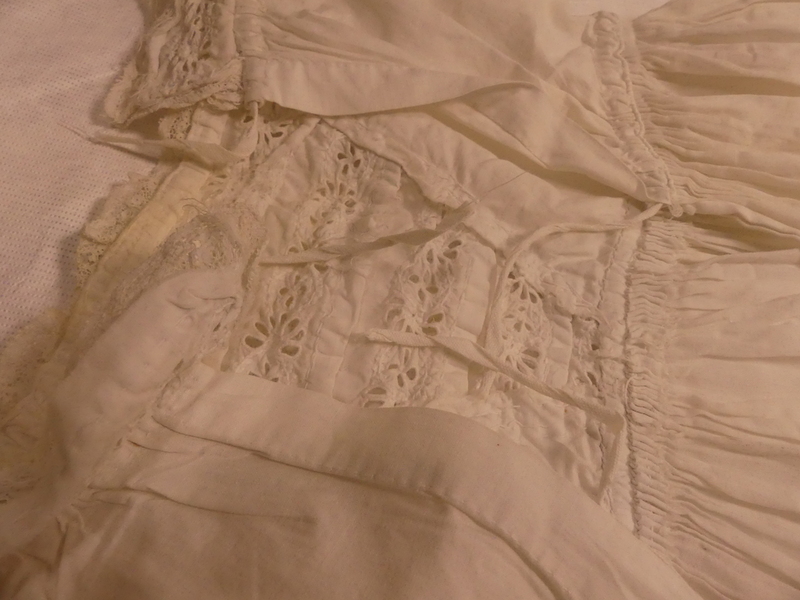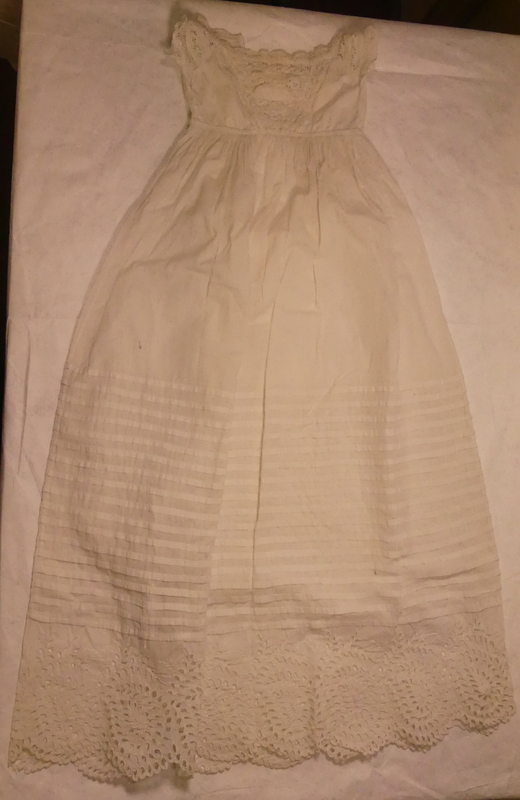Jack Erskine
This is the christening gown of John Angus Erskine, known as Jack, who was born in 1873. In 1891, Erskine won a scholarship to Canterbury College and took an interest in the experimental science of electricity. When he attended the College, the School of Engineering was still in its infancy, and electrical engineering would not be offered until after Erskine’s graduation. However, with the support of his Professor, Alexander Bickerton, Erskine was able to explore the field regardless. Upon Erskine's graduation in 1893, he and his friend Ernest Rutherford (who would later win the Nobel Prize in Chemistry) remained at the College and spent much of their time collaborating on experiments together. During this period Erskine gained a Masters with First Class Honours for his research in science, mathematics and mathematical physics. Spending all this time at the College, and in classes, it is easy to picture Erskine listening to his professors whilst carving his name into the desk where he sat, marking his time at the College with certainty.
In 1896, Erskine travelled to Berlin to continue his research at the University of Leipzig, following which he moved to London in 1899 to continue his studies. There he became involved in translating various German literary works into English. Upon his return to New Zealand in 1901, he returned to Canterbury College and attended classes in mechanical engineering that led to him becoming involved with the General Electric Company related industries in America and Australia. In 1920, Erskine took a step back from the sciences and engineering and spent the remainder of his days finding success in the stock market. Throughout his years, locally and abroad, Erskine was a talented and avid chess player and won several competitions.
Upon his death in 1960, Erskine’s last will and testament outlined the details of his intentions for the John Angus Erskine Bequest. This scholarship was to provide University of Canterbury students and staff with funds to travel overseas for the betterment of their studies and to bring students and staff from other countries to the University to do the same.


